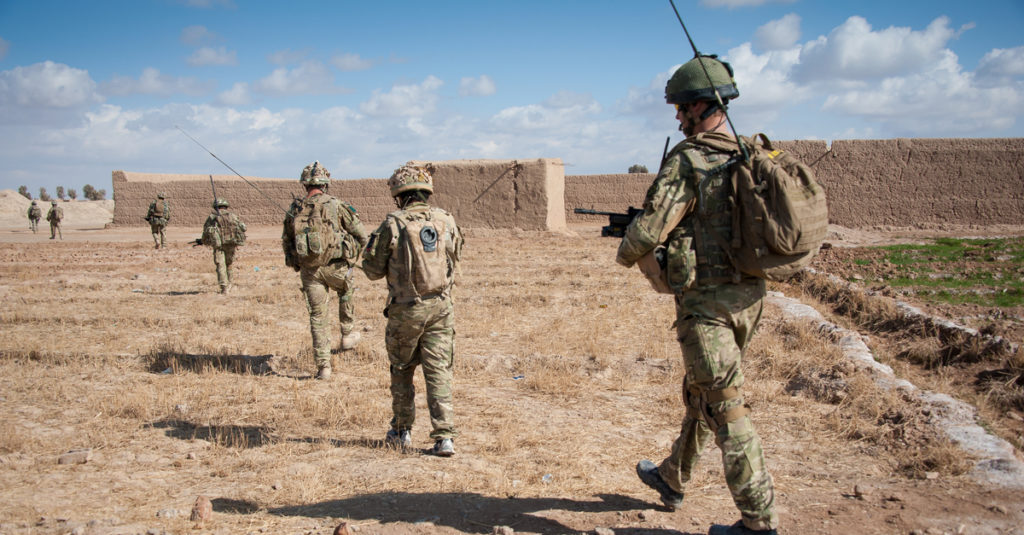Maria Akbar says Muslims should not be surprised by the casual way in which the media is reporting the killing of 25 Afghans by Prince Harry, because ultimately our lives are worth less in the eyes of the British establishment.
The recent media reports of Prince Harry’s imminent book mention the 25 Afghans that he murdered whilst serving as a helicopter pilot in Afghanistan during 2012-13. The prince describes those he killed as “chess pieces” removed from the board.
He also justifies these killings by saying they were “bad people” eliminated before they could kill “good people,” although how could he be sure of who exactly he was murdering when firing from a helicopter?
Muslims have been otherised for centuries now, and therefore something like this should not take us by surprise. In fact, the way that this has been reported across media outlets – a mere mention amongst other trivial family matters in his book – shows just how much they are minimising the extent of his crimes.
And where there has been discussion of this news, the focus has been on what he mentioned, should he have mentioned it or what codes he has violated by mentioning it, as opposed to the horrific fact that he murdered people in an unjustified war!
In turn, the general public will digest this as a minor story, focusing on insignificant details as opposed to the great atrocity of his war crimes and thereby contribute to the otherisation of Muslims.
On the other hand, there would have been outrage, without a doubt, had this been about the murder of civilians of any other nation; and it would have been reported as it deserves to have been – with horror, disgust and anger.
Subscribe to our newsletter and stay updated on the latest news and updates from around the Muslim world!
So it is up to us as Muslims to shift the focus to where it needs to be.
Otherisation
Otherisation refers to making a group of people, in this case Muslims, seem different to the general group of people, and therefore empathy, care, concern, moral and political values, cease to exist for them.
We can see this most recently in the response to the Russia-Ukraine war, where most people expressed extreme sadness, compassion and empathy for the victims, both Ukrainian and Russian. There was genuine care and concern for the victims of this war and for those witnessing it. Articles mentioned how to manage war-related anxiety after merely viewing or hearing about the war. The reports on this were unique to say the least.
On the other hand, the deaths and persecution of Muslims that have been happening for decades – in Afghanistan, Iraq, Syrian, East Turkestan and Palestine – have rarely been mentioned.
But Muslims are deeply affected after hearing about the suffering of our brothers and sisters across the world, since our values are such that we view the Ummah as one body; and when one part of it is hurting, all of it is hurting.

Who then sets the standard about who is deserving of empathy, care and concern? There is blatant hypocrisy, and a selective lack of empathy shown by media outlets, which in turn affects the views of the masses when it comes to the death of Muslim men, women, mothers and infants.
Yes as Muslims we show empathy for all people, all of the time. Our concern is not limited to a group of people who are somehow viewed as “superior” and “more deserving” of empathy due to some twisted standard set by the perpetrator.
This comes through a hadith where it is mentioned that:
“Allah has one hundred mercies, out of which He has sent down only one for jinn, mankind, animals and insects, through which they love one another and have compassion for one another; and through it, wild animals care for their young. Allah has retained ninety-nine mercies to deal kindly with His slaves on the Day of Resurrection.” (Al Bukhari and Muslim)
In fact, our care and compassion is not limited to humans, but extends to insects. What then can be said about how we should treat other humans? Every human life is viewed as sacred. No one is superior to another.
So how should Muslims respond to this otherisation? The first step in my view is to be aware of it and support those organisations that report on the lives of Muslims. Secondly, in our day-to-day dealings with individuals, these topics should come up for discussion and we should speak up for Muslims and against this hypocrisy.
Finally, we should continue to show those who do not show us empathy and compassion, that very thing since they are not the standard of how we deal with matters. Instead, our code of conduct, our values and morals are set through the Quran and the Sunnah. And this will always prevail.























